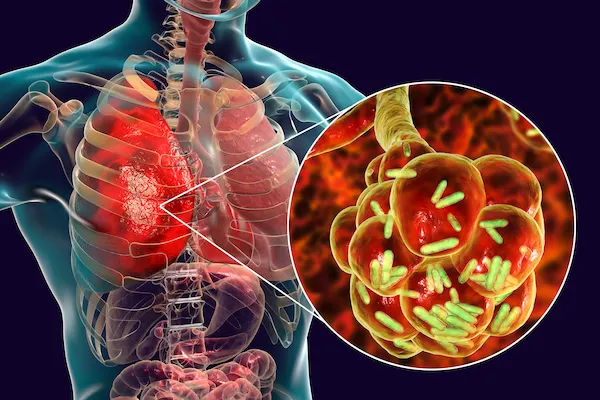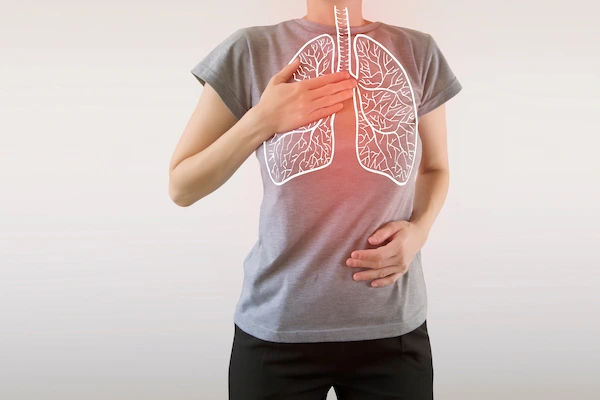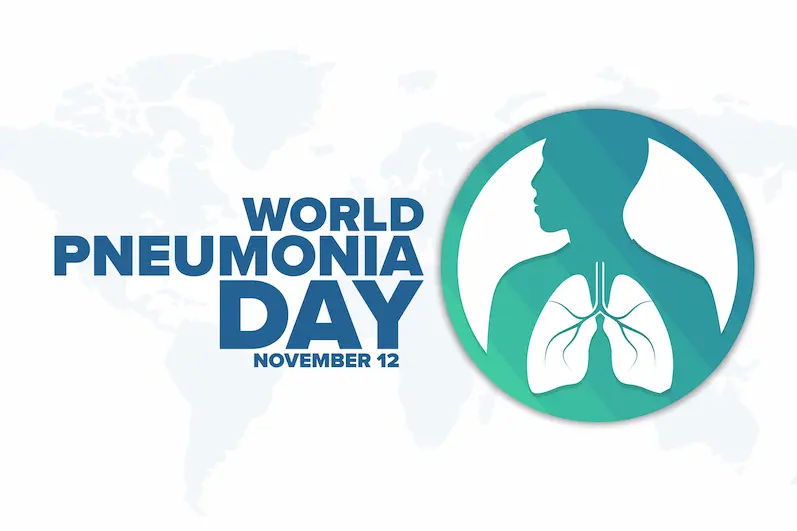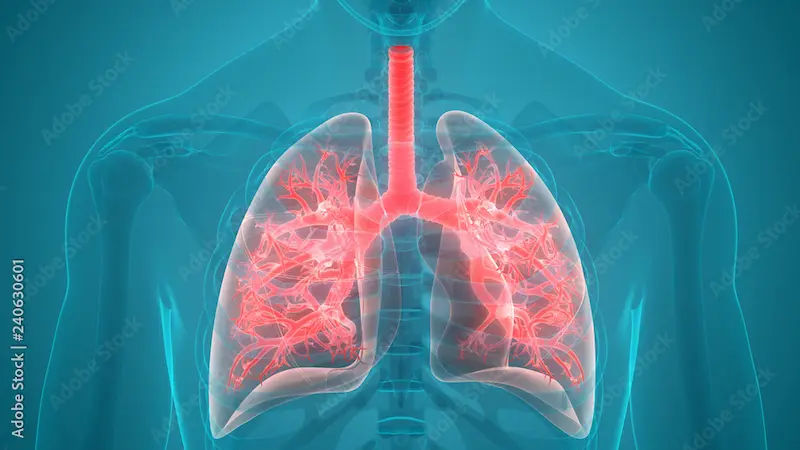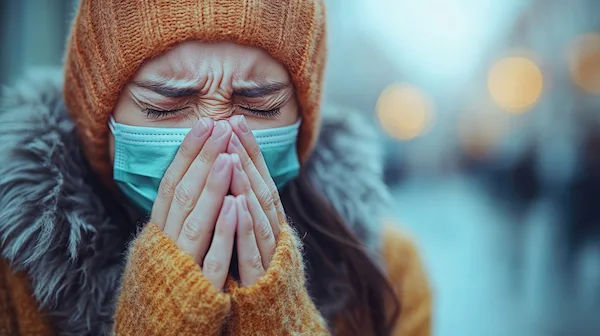Guide to Understanding Pneumonia
Learn everything you need to know about pneumonia, including causes, symptoms, treatments, and prevention tips to protect your health.

Written by Dr. J T Hema Pratima
Reviewed by Dr. D Bhanu Prakash MBBS, AFIH, Advanced certificate in critical care medicine, Fellowship in critical care medicine
Last updated on 13th Jan, 2026
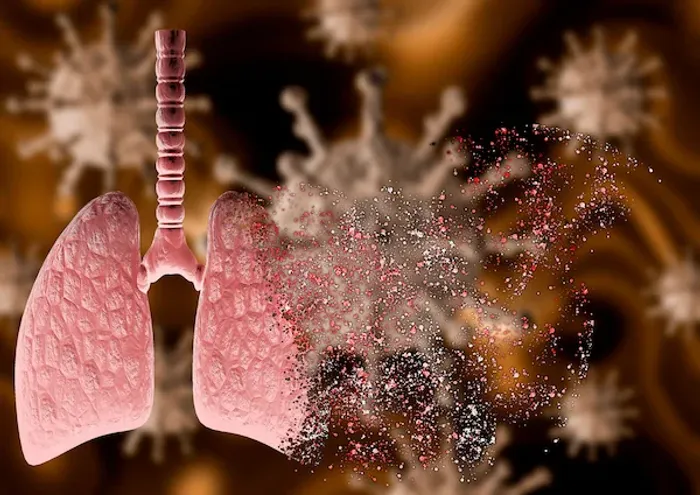
Introduction
Pneumonia is a common yet often misunderstood respiratory infection that affects millions each year. At its core, it’s an inflammation of the air sacs in one or both lungs, but the experience can range from a mild annoyance to a life-threatening illness. If you or a loved one has ever struggled with a persistent cough, high fever, and difficulty breathing, you know how frightening it can be. Understanding what pneumonia is, how it spreads, and what to do about it is the first step toward protecting your health. This guide will walk you through everything you need to know—from spotting the early signs of walking pneumonia to understanding when it’s crucial to seek medical help. We’ll demystify the causes, break down the treatment options, and give you practical tips for prevention and recovery. Let’s dive in and clear the air about this serious lung infection.
What is Pneumonia?
Pneumonia is an infection that causes the air sacs (alveoli) in your lungs to become inflamed and fill with fluid or pus. This buildup makes breathing painful and limits your body's ability to take in oxygen. It can be caused by a variety of organisms, including bacteria, viruses, and fungi. While often treatable, the severity of a pneumonia infection depends on the cause, your age, and your overall health.
How Pneumonia Affects Your Lungs?
Normally, when you breathe, air travels down your windpipe into tubes in your lungs called bronchi, which branch into smaller bronchioles. At the end of these are clusters of tiny, balloon-like air sacs called alveoli. In healthy lungs, the alveoli fill with air, and oxygen passes into your bloodstream. When you have pneumonia, these sacs become inflamed and fill with fluid, preventing efficient oxygen exchange. This is what leads to the classic symptoms like shortness of breath and feeling like you can’t get enough air.
The Many Causes of Pneumonia
Identifying the cause of pneumonia is key to effective treatment, as the medication for bacterial pneumonia won't work on a viral infection.
Bacterial Pneumonia
This is the most common type of pneumonia in adults. The leading cause is Streptococcus pneumoniae. Bacterial pneumonia can occur on its own or after you have a cold or the flu. It often affects one lobe (section) of the lung, a condition known as lobar pneumonia, and typically comes on suddenly with a high fever and severe cough.
Viral Pneumonia
Respiratory viruses, including influenza (flu), RSV, and SARS-CoV-2 (the virus that causes COVID-19), are frequent causes of pneumonia, especially in young children. Viral pneumonia is often milder than bacterial forms, but it can make the lungs vulnerable to a secondary bacterial infection.
Fungal Pneumonia
This type is less common and typically affects people with weakened immune systems or those who have inhaled large amounts of specific fungi from the environment. It's more prevalent in certain geographic regions.
Walking Pneumonia (Mycoplasma Pneumonia)
This is a milder form of pneumonia often caused by the bacterium Mycoplasma pneumoniae. The term "walking pneumonia" comes from the fact that people often feel well enough to go about their daily activities, mistaking it for a bad cold. Symptoms like a persistent dry cough, headache, and low-grade fever can linger for weeks.
Recognizing the Symptoms of Pneumonia
The symptoms of pneumonia can vary widely, which is why it's sometimes confused with bronchitis or a severe cold.
Symptoms in Adults
Cough: Often producing greenish, yellow, or even bloody mucus.
Fever: Can be high, accompanied by sweating and chills.
Shortness of Breath: Especially during physical activity or even while resting.
Chest Pain: Sharp or stabbing pain that worsens when you cough or take a deep breath.
Fatigue: Extreme tiredness and loss of energy.
Confusion: Particularly in older adults.
Symptoms in Infants and Young Children
They may not show specific symptoms. Look for:
Fever, cough, and fast or labored breathing.
Grunting or wheezing sounds.
A bluish tint to the lips and fingernails due to lack of oxygen.
Vomiting, lack of energy, and difficulty eating or drinking.
If you or your child experiences difficulty breathing, chest pain, or a high fever, it's essential to consult a doctor promptly. For a quick assessment, you can consult a doctor online with Apollo24|7 to determine the next steps.
Who is Most at Risk?
While anyone can get pneumonia, certain groups are at higher risk for severe illness:
Infants and children under 2 years old.
Adults aged 65 and over.
People with chronic diseases (e.g., asthma, COPD, heart disease, diabetes).
Smokers, as smoking damages the lungs' natural defenses.
Individuals with weakened immune systems (due to HIV/AIDS, chemotherapy, or organ transplants).
How is Pneumonia Diagnosed?
If pneumonia is suspected, a doctor will typically:
1. Listen to your lungs with a stethoscope for crackling or bubbling sounds.
2. Order a chest X-ray to confirm the diagnosis and see the infection's location.
3. Conduct blood tests to check your white blood cell count and identify the type of germ.
4. Analyze a sputum sample from your cough to pinpoint the specific bacterium.
In some cases, Apollo24|7 offers convenient home collection for tests like a CBC (Complete Blood Count) to aid in diagnosis without a lab visit.
Consult an General Physician
Effective Pneumonia Treatment Options
Treatment depends entirely on the cause and severity of your pneumonia.
Medications for Pneumonia
Antibiotics are used for bacterial pneumonia. It's crucial to finish the entire course.
Antiviral drugs can help if a virus is the cause, especially if caught early.
Fever reducers and pain relievers like acetaminophen or ibuprofen can manage symptoms.
Home Care and Recovery Tips
Get plenty of rest to help your body fight the infection.
Stay hydrated by drinking water, broth, and herbal tea to loosen mucus.
Use a humidifier to ease breathing and cough.
Avoid smoking and secondhand smoke.
When Hospitalization is Necessary?
Severe pneumonia may require hospital care for:
Intravenous (IV) antibiotics.
Respiratory therapy to help clear the lungs.
Oxygen therapy to maintain blood oxygen levels.
Can Pneumonia Be Prevented?
The Importance of Vaccination
Vaccination is your best defense. Key vaccines include:
Pneumococcal vaccines (PCV13, PPSV23) protect against the most common bacterial cause.
Flu vaccine, since influenza is a major cause of viral pneumonia.
COVID-19 vaccine.
Healthy Lifestyle Habits
Wash your hands frequently with soap and water.
Don't smoke and avoid lung irritants.
Maintain a healthy lifestyle with a balanced diet and regular exercise to keep your immune system strong.
Get enough sleep to support your body's natural defenses.
Potential Complications of Pneumonia
Even with treatment, pneumonia can lead to complications, especially in high-risk groups. These include bacteremia (bacteria entering the bloodstream, leading to sepsis), lung abscesses, and pleural effusion (fluid buildup around the lungs). This is why prompt and proper treatment is non-negotiable.
Conclusion
Pneumonia is a serious respiratory infection, but it’s one that we understand well and can effectively treat and prevent. The key is to listen to your body. What might start as a common cold can sometimes develop into something more severe. Recognizing the signs—especially a persistent cough, fever, and trouble breathing—empowers you to take action early. Remember the importance of prevention through vaccines and healthy habits, and don’t hesitate to seek professional medical advice if you’re concerned. Your lungs are vital, and protecting them is essential for your long-term health. By staying informed, you can breathe easier knowing you’re prepared.
Consult an General Physician
Consult an General Physician

Dr. Rajib Ghose
General Physician/ Internal Medicine Specialist
25 Years • MBBS
East Midnapore
VIVEKANANDA SEBA SADAN, East Midnapore

Dr. Hariprasath J
General Physician/ Internal Medicine Specialist
19 Years • MD (Gen Med), FCCP, Dip (Diabetology, UK)
Chennai
Apollo First Med Hospitals P H Road, Chennai
(225+ Patients)

Dr Vinay Kumar A V
Nephrologist
8 Years • MBBS, MD - General Medicine, DM - Nephrology
Bilaspur
Apollo Hospitals Seepat Road, Bilaspur
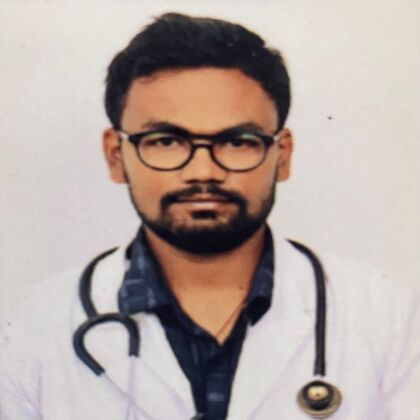
Dr. Naresh
General Physician/ Internal Medicine Specialist
5 Years • MBBS, MD (General Medicine)
Mahbubnagar
SIMS HOSPITAL, Mahbubnagar

Dr. Santanu Mandal
General Physician/ Internal Medicine Specialist
18 Years • MD (Physician), DNB (General Medicine)
Kolkata
MCR SUPER SPECIALITY POLY CLINIC & PATHOLOGY, Kolkata
(25+ Patients)
